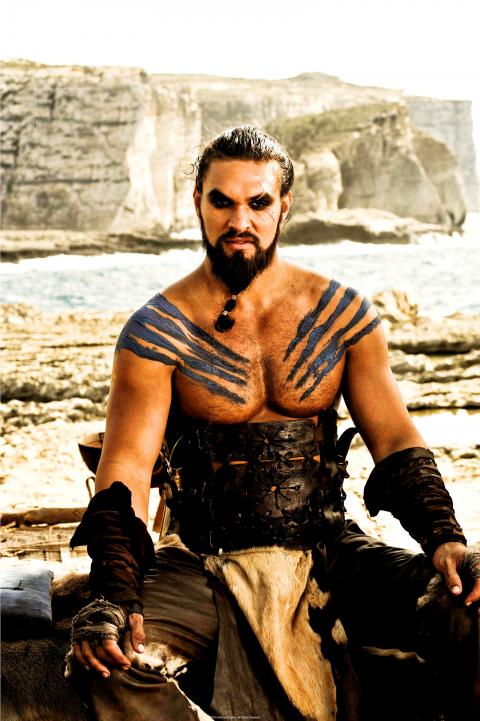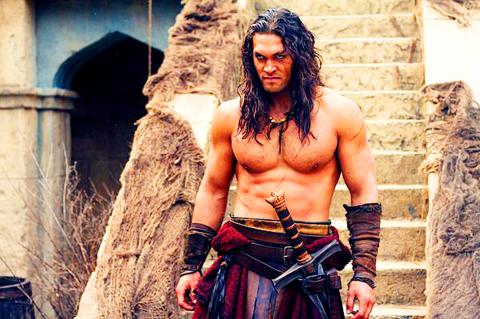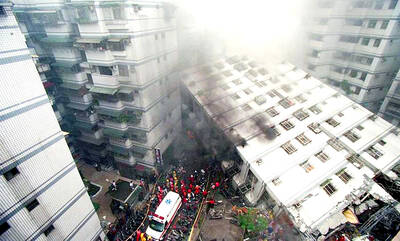It is a bumper weekend for swords and sorcery fans with the release of Marcus Nispel’s remake of John Milius’ campy Conan the Barbarian and the hugely successful (13 Emmy nominations) HBO adaptation of the first book in George Martin’s five-novel fantasy epic A Song of Ice and Fire. The two share a star in the form of Jason Momoa and a delight in the graphic portrayal of violence. Despite that, the results are startlingly different.
For those brought up on the stylized silliness and ideological pretensions of the 1982 Conan the Barbarian, which achieved a cult following and helped launch Arnold Schwarzenegger in his cinematic career, the remake cannot help but be a disappointment. This is not to say that technically it is not a much better film, but that the absence of the ridiculous humor, both intentional and otherwise, diminishes it. It is instructive to remember that the first Conan film opened with a quote derived from Nietzsche (“what doesn’t kill us makes us stronger”), and had a wonderfully atmospheric narrator in the Japanese actor Mako, who could read lines of the utmost silliness and impose on them some element of grandeur.
Morgan Freeman, who serves as the new narrator, a great actor who has survived many projects unworthy of his talents, seems here unable to muster any conviction in the rendition of his perfunctory lines.

photo courtesy of Catchplay and HBO
All the effort in the filmmaking for the new Conan the Barbarian seems to have gone into a taste for nasty violence, some of it quite successfully shocking. There are also some very energetic fight sequences. But there is something lacking throughout, and that something is chemistry. Not just chemistry between the cast members, but also between the filmmakers and the audience. However ridiculous the aspirations of the first Conan movie to achieve a cartoon take on Nietzsche, the absence of any aspirations at all, other than an aim to entertain, are a fatal flaw in this new film.
Accepting that this is a big-budget B-movie, it must be said that there are a number of quite descent performances, starting from Ron Perlman as Conan’s father, who manages his utterly improbable and not particularly well-scripted role with his usual professionalism, to Rose McGowan, whose role as the Gothic horror princess is carried off with great conviction. There is no shortage of talent on screen, but the age of heroes has passed, and even great villains are hard to come by these days. With all due respect to Stephen Lang, who works hard at playing the villain Khalar Zym, his performance is small potatoes compared with the inspired camp of James Earl Jones as Thulsa Doom, a far more improbable bad guy, who, with his crazy inward stare and brilliantly stylized dialogue (who can ever forget “contemplate this upon the tree of woe”), still seems a more vital part of the nexus between art and society than this remake will ever be.
As pure entertainment, if you like the sound system turned up high and viscera flying about in all directions, Conan the Barbarian is a more than adequate film, with plenty of good effects. Its greatest failing is that it makes even such an inadequate film as its predecessor look good by comparison.

photo courtesy of Catchplay and HBO
Conan the Barbarian can be seen in 3D with all the benefits of a highly sophisticated audiovisual environment. Game of Thrones, the HBO original mini-series that premieres on Sunday, is proof, like The Sopranos and Six Feet Under, that the smaller and more intimate, medium of television is still very much alive and can take on the big boys of the big screen at the business of telling a ripping good yarn.
This is swords and sorcery conceived on a massive scale, and has been described as The Sopranos meets Middle Earth. It does not achieve the intensely cynical worldview purveyed in The Sopranos, nor the transcendental folkloric faith that drives Lord of the Rings, but it finds its own way somewhere in between. It mixes up the kind of sexuality and intrigue that proved such a draw in another HBO series, Rome, and the extreme brutality, bloody violence, softcore sex and beautiful bodies that characterized the appeal of Spartacus: Blood and Sand. It’s almost a perfect mix. More importantly, Game of Thrones has the budget, on-screen talent and a prodigious screen writing team that manages to keep a complex story together.
It would be meaningless to provide a synopsis of this vastly complex story, but it’s sufficient to say that it deals with a group of powerful families struggling for the throne that commands seven kingdoms. The cast is huge, and the world in which the action takes place is one in which the seasons can last for years and in which many supernatural forces are active. The first series of 10 episodes has a strong cast that includes Sean Bean as the taciturn lord of the kingdom’s northern vastness, and there are brilliant performances by Peter Dinklage as the dwarf son of a powerful family seeking to make his own way, Iain Glan as a servant of an ancient dynasty seeking to restore its rights over the kingdom, and, as mentioned at the beginning, Jason Momoa as Khal Drogo, a barbarian warrior lord who does great credit to his personal trainer.
While Momoa does not have to do much acting in this role, his physical presence manages to achieve more in The Game of Thrones than it does in Conan the Barbarian. Once again, a reminder that script and story make all the difference, and even acting that relies more on brawn than method can achieve much if it is at the service of a good tale told with conviction.

Seven hundred job applications. One interview. Marco Mascaro arrived in Taiwan last year with a PhD in engineering physics and years of experience at a European research center. He thought his Gold Card would guarantee him a foothold in Taiwan’s job market. “It’s marketed as if Taiwan really needs you,” the 33-year-old Italian says. “The reality is that companies here don’t really need us.” The Employment Gold Card was designed to fix Taiwan’s labor shortage by offering foreign professionals a combined resident visa and open work permit valid for three years. But for many, like Mascaro, the welcome mat ends at the door. A

If China attacks, will Taiwanese be willing to fight? Analysts of certain types obsess over questions like this, especially military analysts and those with an ax to grind as to whether Taiwan is worth defending, or should be cut loose to appease Beijing. Fellow columnist Michael Turton in “Notes from Central Taiwan: Willing to fight for the homeland” (Nov. 6, page 12) provides a superb analysis of this topic, how it is used and manipulated to political ends and what the underlying data shows. The problem is that most analysis is centered around polling data, which as Turton observes, “many of these

Divadlo feels like your warm neighborhood slice of home — even if you’ve only ever spent a few days in Prague, like myself. A projector is screening retro animations by Czech director Karel Zeman, the shelves are lined with books and vinyl, and the owner will sit with you to share stories over a glass of pear brandy. The food is also fantastic, not just a new cultural experience but filled with nostalgia, recipes from home and laden with soul-warming carbs, perfect as the weather turns chilly. A Prague native, Kaio Picha has been in Taipei for 13 years and

Since Cheng Li-wun (鄭麗文) was elected Chinese Nationalist Party (KMT) chair on Oct. 18, she has become a polarizing figure. Her supporters see her as a firebrand critic of the ruling Democratic Progressive Party (DPP), while others, including some in her own party, have charged that she is Chinese President Xi Jinping’s (習近平) preferred candidate and that her election was possibly supported by the Chinese Communist Party’s (CPP) unit for political warfare and international influence, the “united front.” Indeed, Xi quickly congratulated Cheng upon her election. The 55-year-old former lawmaker and ex-talk show host, who was sworn in on Nov.